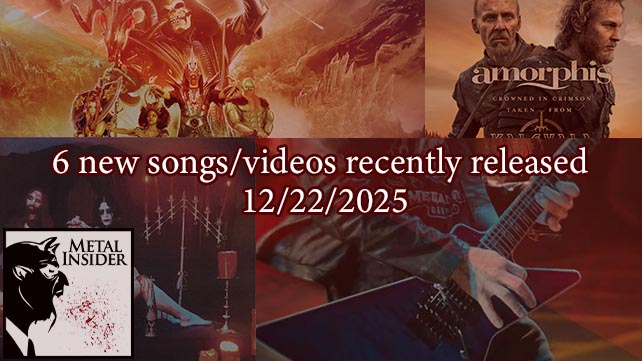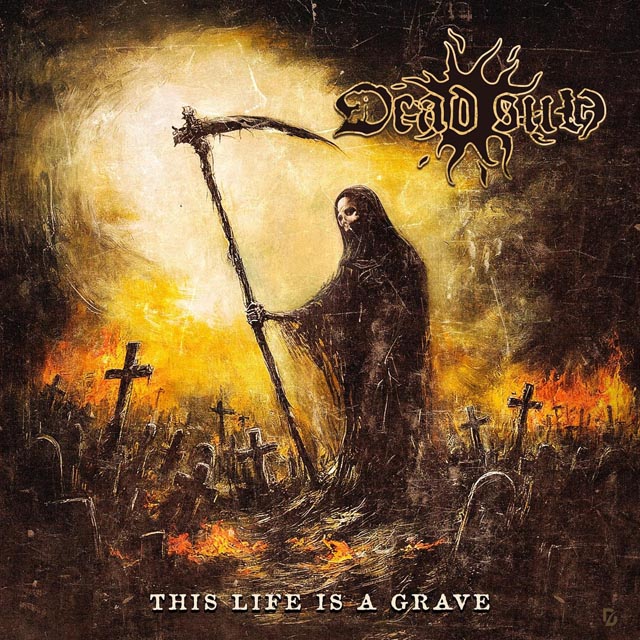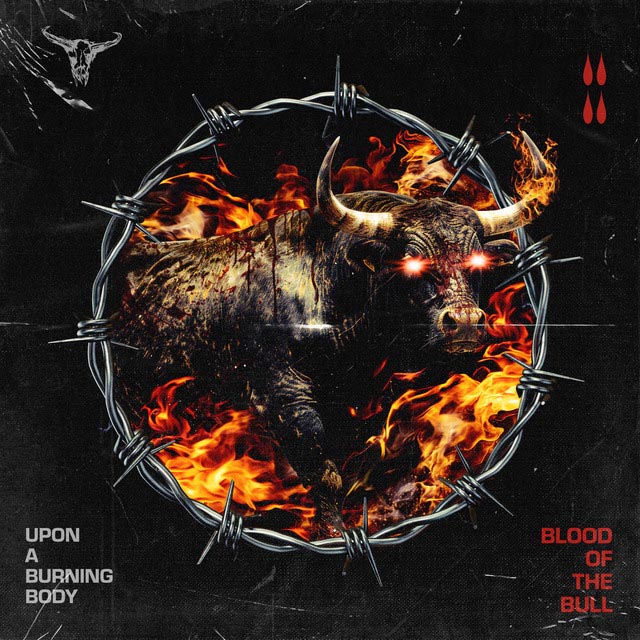
Wizardthrone, the new supergroup featuring members of Alestorm, Gloryhammer, Aether Realm, Forlorn Citadel, Nekrogoblikon, and more, are gearing up for their debut album, Hypercube Necrodimensions, out this Friday (16th) via Napalm Records (pre-order here). We caught up with guitarist/vocalist M. Archistrategos Barber (Mike Barber of Gloryhammer/Deathcode Society), revealing five things Wizardthrone learned creating an album and forming a new supergroup during the COVID-19 pandemic.
When shit hits the fan and your future plans are suddenly put on ice thanks to a deadly pandemic, there’s clearly only one course of action – hit up the best musician pals you know and write the world’s greatest Extreme Wizard Metal record. With little experience of global shutdowns, we had to think on our feet to find solutions to what would be otherwise trivial problems. Here are a few things we picked up along the way:
Lesson 1: Dig through your old record collection
Day to day life can usually be pretty fast paced and I’m as guilty as anyone else when it comes to relying on algorithms to recommend new music. But when the brakes were suddenly jammed on I found myself having the time to rediscover the albums I loved growing up, and they all sounded so fresh and new. Taking the time to dive through my past music taste, as well as older records recommended by my bandmates, was the perfect way to hit reset on any preconceived idea as to what a modern metal record should be, and helped the creative process to no end.
Lesson 2: Communication is key
We live in 3 different countries and 4 different time zones, so being able to listen and discuss matters properly played a huge part in getting the record finished in a timely manner. I’m usually the kind of guy who writes something then spends the next few weeks overthinking what happens next, and working with guys who keep ideas flowing fast, like Chris (keys) and Matt (guitars), taught me not to let perfection be the enemy of progress, even though it initially felt unnatural. As well as that, understanding everyone’s personal situation is pretty important – an example being that while I was stuck indoors messing around with music software, Jake (vocals/bass) was out being a bona-fide hero and dealing out vaccines, so holding that in mind kept things in perspective when waiting for a response to whatever stupid question I’d thrown out.
Lesson 3: Get comfortable
We committed to a deadline very early on in the writing process, and it was apparent that would mean a lot of long days in the home studio in order to get everything done. If you want to stay focused, you need to be comfortable and in the zone.
In my case it meant slipping into some atrocious $3 cactus-patterned shorts from Walmart, keeping a guitar with me at all times (even keeping a small practice amp next to me when I was sleeping in case of any sudden ideas) and using a corner of my room as a dedicated ‘music zone’. Stupid rituals like that keep your mind set on the task at hand.
Lesson 4: Get uncomfortable
It’s easy to fall into a rut when writing a lot of material, especially when it’s being composed in a short space of time. Don’t shoot down a bandmate’s idea just because it wasn’t what you had in mind – sleep on it, maybe write something on top of it, switch a few chords around – likewise if you’ve written something that you may not think is all that great, run it by someone else before you discard it. Try composing using an instrument you’re less used to, or no instrument at all. Often my better ideas come from a more abstract place rather than repeating the same mechanical patterns.
Lesson 5: Don’t take life too seriously
Easier said than done, I know! Having dealt with anxiety/depression and having a few coping mechanisms up my sleeve when things get hard definitely made life a lot easier throughout the endless lockdowns and tour cancellations. While it’s no laughing matter that billions of people’s lives were changed almost overnight, understanding that the situation is temporary is key to staying sane. Going through a few rough patches previously, this felt no different, whereas conversely, a few more well-adjusted friends seemed to really struggle throughout the lowest points. Take what you can from what you went through, own it, apply it to shitty situations that’ll come up further on in life, and when everything seems too serious, remember that time you read an advice column written by a guy who pretends to be a fucking wizard.












